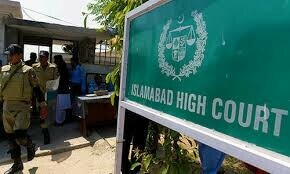ISLAMABAD: Local government has been practiced in our land since 21st Century BC but the politics behind the practice seems to have changed little.
That is what one gathered at a conference on the challenges the devolution of power to local government (LG) brought. The conference was held by the Islamabad Policy Research Institute (IPRI) here on Wednesday.
Professor Dr Ishtiaq Chaudhry, Head of the Department of Peace and Conflict Studies at the National Defence University, held politicians more responsible than the bureaucracy for the third tier of the democratic system not taking root in Pakistan in its 68 year existence.
What else, except lack of political will, prevented the political parties which have ruled Punjab and Sindh for the last eight years, to hold LG elections. But he doubted those elections could be delayed any further.
To him the Basic Democracy System introduced by General Ayub Khan was “the best LG System”. Without offering an alternative, the major political parties agitated and buried that LGS in 1967, he said.
Similarly, politicians did not accept the LG system given by General Ziaul Haq in the 1980s. He said, “General Pervez Musharraf’s ‘Devolution of Power Plan of the year 2000’ was real devolution but political parties did not accept that either.”
Prof Dr Ishtiaq Chaudhry found it unfortunate the political parties do not understand that the local government system strengthens them. He suggested structural changes that will make local governments so strong political parties would find it impossible to abolish them.
Federal Minister for State and Frontier Regions retired Lt-Gen Abdul Qadir Baloch said the world recognised the local governments as the best system to solve people’s problems but in Pakistan it failed because the democratic process could not continue uninterrupted.
“Police and District Administrations are against the LG system,” he said, recalling that in 2001 “the Nazims tried to occupy the residences of Deputy Commissioners and use their powers”.
Agreeing that legislation was the job of elected assemblies, he said issues like development, sewerage system, water supply etc should be handled by the local governments.
However, the retired general said “since local government system works well in educated societies, devolution of power to that level in Pakistan should occur in phases.”
It was Mr Azhar Bashir Malik, Chief Operating Officer of the Devolution Trust for Community Empowerment, who wondered why the merits of local government were being discussed when it had been in practice in Harappa and Mohenjodaro societies in 2000 BC.
He said, “Invest and implement LG System with all powers and let it work without any interruption. Representatives elected to LGs should have control over their funds. Unfortunately they are not allowed to spend funds and without that power LGs will never be able to deliver.”
He added, “The criteria for the federation to allocate financial resources to the provincial governments is based on the principle of poverty and underdevelopment and the provinces should apply the same principle in allocating funds to the district governments.”
Federal Secretary Inter Provincial and Local Governments Affairs, Muhammad Ejaz Chaudhary, noted that the idea of LGs is not embedded in the constitution.
“The rich and the mighty dominated LGs of the Ayub Khan and Ziaul Haq eras. The LG system introduced by Pervez Musharraf was very good but could not take off,” he said, “It is necessary to devolve power to people. The18th Constitution Amendment dealt with all issues except the LGS.”
Participants of the conference agreed that the third tier of government has been neglected in the past. They said ‘concrete reforms’ were needed to introduce a vibrant LG System. That alone would open up participatory spaces for the citizens to access their social and political rights.
MNA Daniyal Aziz, an old warrior for LGs and moderator of the conference, concluded it by declaring that “decentralisation of power is the ultimate solution to uphold democracy”.
Published in Dawn October 1st, 2015
On a mobile phone? Get the Dawn Mobile App: Apple Store | Google Play










































Dear visitor, the comments section is undergoing an overhaul and will return soon.